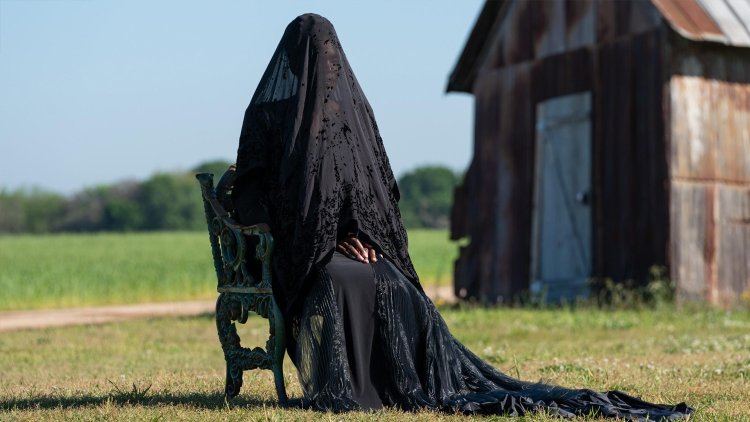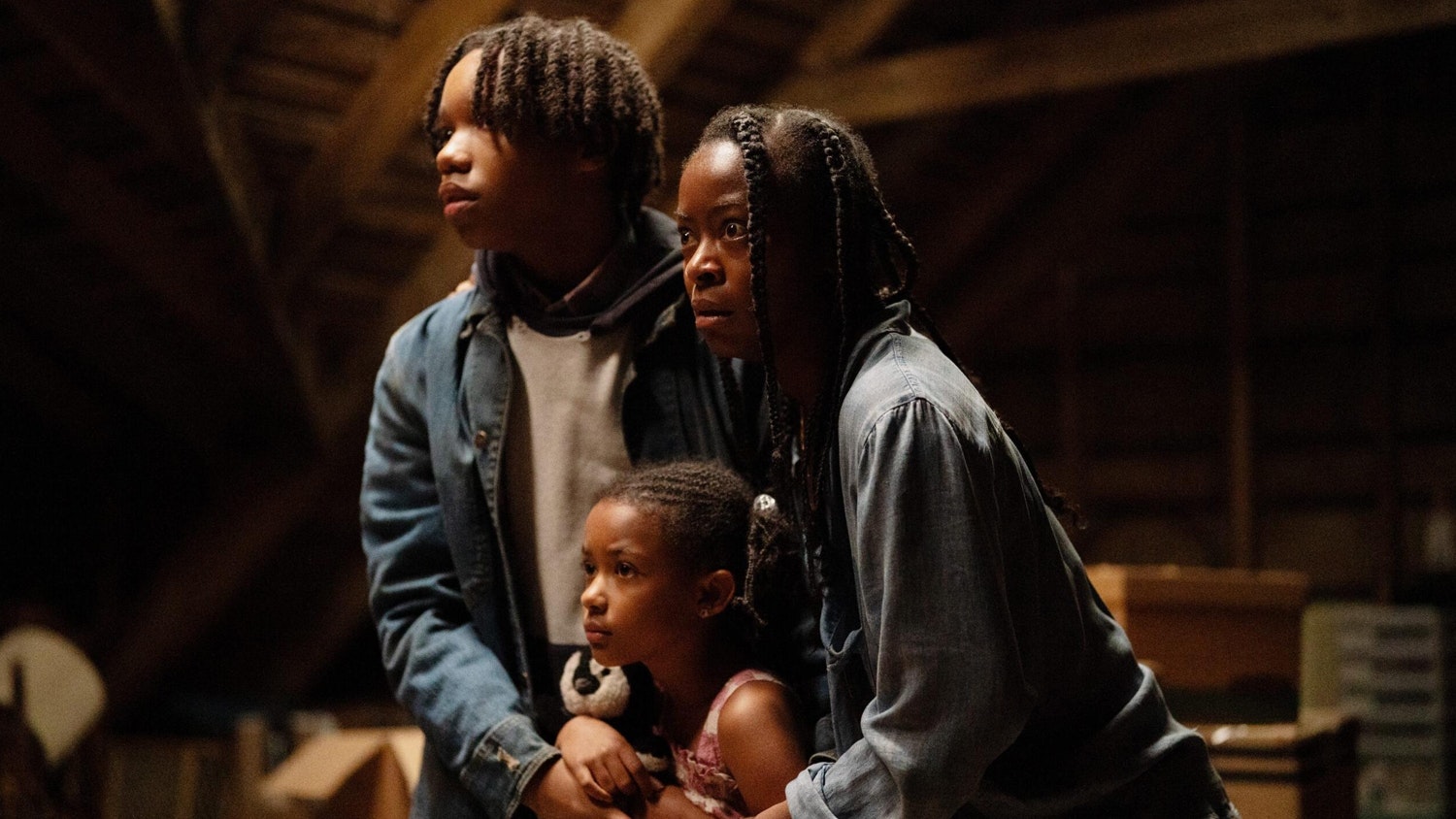The Woman In The Yard
After a series of big, bruising action efforts, director Jaume Collet-Serra is...

After a series of big, bruising action efforts, director Jaume Collet-Serra is returning to horror with a closely controlled domestic drama that mines enormous tension from almost a single location and tiny cast. The storytelling isn't always as strong as the performances, but it's good to see a horror manage scares this strong in full, blazing sunlight.

The setting is a study in grief. Ramona (Danielle Deadwyler) is struggling with an injured leg and vaguely defined mental illness after the accident that killed her husband (Russell Hornby). Her son Tay (Peyton Jackson) is managing the house and little sister Annie (Estella Kahiha), while Ramona alternately hides from and shouts at the pair. Then, one morning, a veiled woman (Okwui Okpokwasili) appears in their yard, seated calmly in the blazing sun, and Ramona has to figure out how to keep her family safe from this strange and sinister presence.
Okwui Okpokwasili makes a striking, elegant monster.
The twists and turns that follow are derivative of a number of other horrors, and even have a tinge of J-horror in the shots of trailing black veils blowing gauzily in the breeze, but it would be a spoiler to say which specific films Collet-Serra references. Arguably the real villain is grief and pain, though that doesn't entirely explain the mysterious visitor. Is she a figment of Ramona's imagination? A ghost? A manifestation of loss? An angel of death? Okpokwasili makes a striking, elegant monster, her eyes glittering under her lace veil, with enough presence to terrify even when nothing obviously supernatural is happening beyond a surfeit of lens flare and Dutch angles. There's a cool Nosferatu-style trick with her shadow, and a sense of hot, hazy lassitude to the whole middle section that gives this a sense of eerie disconnect from normality. Yet it's Deadwyler’s reaction to the weird arrival, which might best be described as “shifty”, that really makes you most worried for the kids.
Collet-Serra knows his stuff, so the jump-scares are doled out sparingly but effectively, and the always reliable Deadwyler leans into a character who is uncompromising and often plain wrong. Despite that, the storytelling in the last act feels rushed, with overarching concepts introduced without explanation and played out to confusing effect, and that blunts the final impact of its message.
What's Your Reaction?























